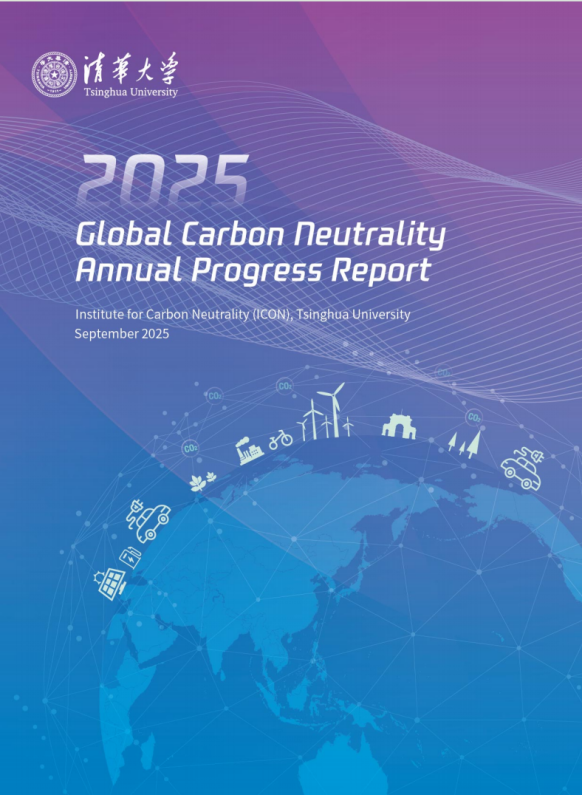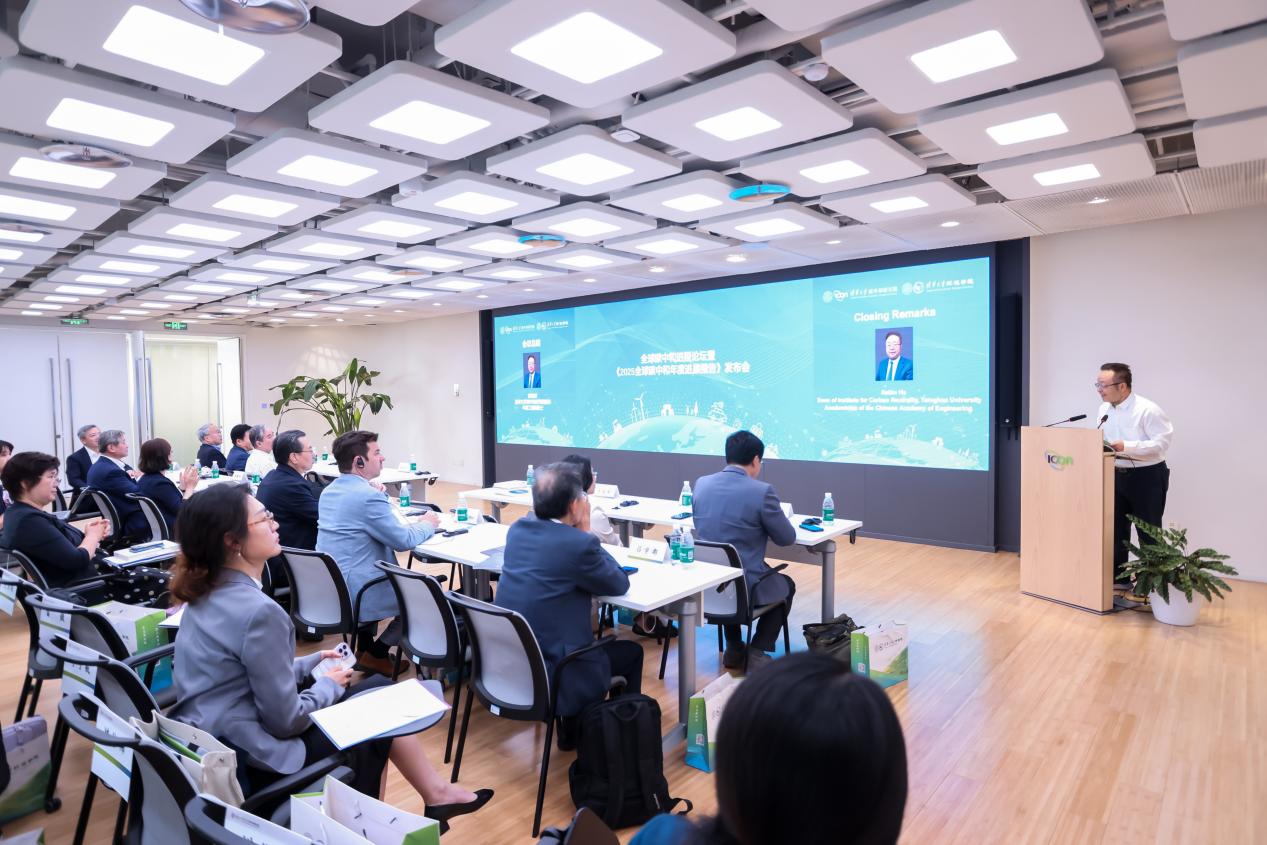At a high-level forum convened at Tsinghua University on September 26, leading global experts and policymakers addressed the widening gap between climate promises and action. The event, held on the 10th anniversary of the Paris Agreement, featured the launch of the 2025 Global Carbon Neutrality Annual Progress Report, a landmark study designed to bring new clarity to the world's climate transition.

2025 Global Carbon Neutrality Annual Progress Report
Jiang Peixue, vice president of Tsinghua University and Academician of the Chinese Academy of Sciences (CAS); Liu Yanhua, honorary chair of the National Expert Committee on Climate Change and former vice minister of Science and Technology; Patricia Espinosa Cantellano, former foreign minister of Mexico, former UNFCCC executive secretary, and co-founder and CEO of Onepoint5; and Liu Yang, deputy director general, Department of Climate Change, Ministry of Ecology and Environment (MEE), delivered keynote speeches and jointly unveiled the report.
The forum, themed “Global Progress and China’s Practice,” opened with a high-level dialogue featuring Liu Yang, who provided an authoritative update on China’s “dual-carbon” progress and its newly announced Nationally Determined Contribution (NDC). Her remarks were echoed by international calls for action from speakers including Patricia Espinosa Cantellano, former UNFCCC Executive Secretary.
The centerpiece of the event was the unveiling of the report, now in its third annual update. Led by Professor Wang Can, this ongoing assessment provides one of the most comprehensive, science-based evaluations of global climate progress. Its unique, systemic perspective is built on:
• Tracking 198 countries and regions with 217 detailed indicators across technology, finance, and policy;
• Adopting an equity lens to evaluate the fairness and justice of the global transition;
• Committing to a continuous, long-term evaluation to inform global climate governance year after year.
Marking a significant milestone in its development, the report this year is guided for the first time by a 13-member international Advisory Committee. The committee is co-chaired by He Kebin, Dean of Tsinghua’s Institute for Carbon Neutrality, and Erik Solheim, former Under-Secretary-General of the UN and Executive Director of UNEP, reinforcing the report’s commitment to combining Chinese leadership with a global perspective.
This year’s report identifies a “profound structural imbalance”: while ambition and innovation are driving progress, they are being severely undermined by bottlenecks in climate finance and international cooperation. This has created a critical “implementation gap” between stated goals and tangible results.
The report’s rigorous methodology has earned praise from international climate leaders. “This is the type of research into climate that reinforces our sense of purpose and our sense of hope,” said Patricia Espinosa Cantellano. She added, “What stands out is the four-part framework — target, policy, action, effectiveness — a game-changer for tracking climate progress.”
The findings and dialogues from the forum are intended to provide a scientific basis for shaping stronger NDCs and informing the critical discussions at the upcoming COP30 in Brazil. By highlighting both the irreversible momentum of the green transition and the urgent need to close the implementation gap, the event concluded with a strong call for renewed international efforts to convert commitments into concrete action.

Scene from the launch event
Editor: Li Han

